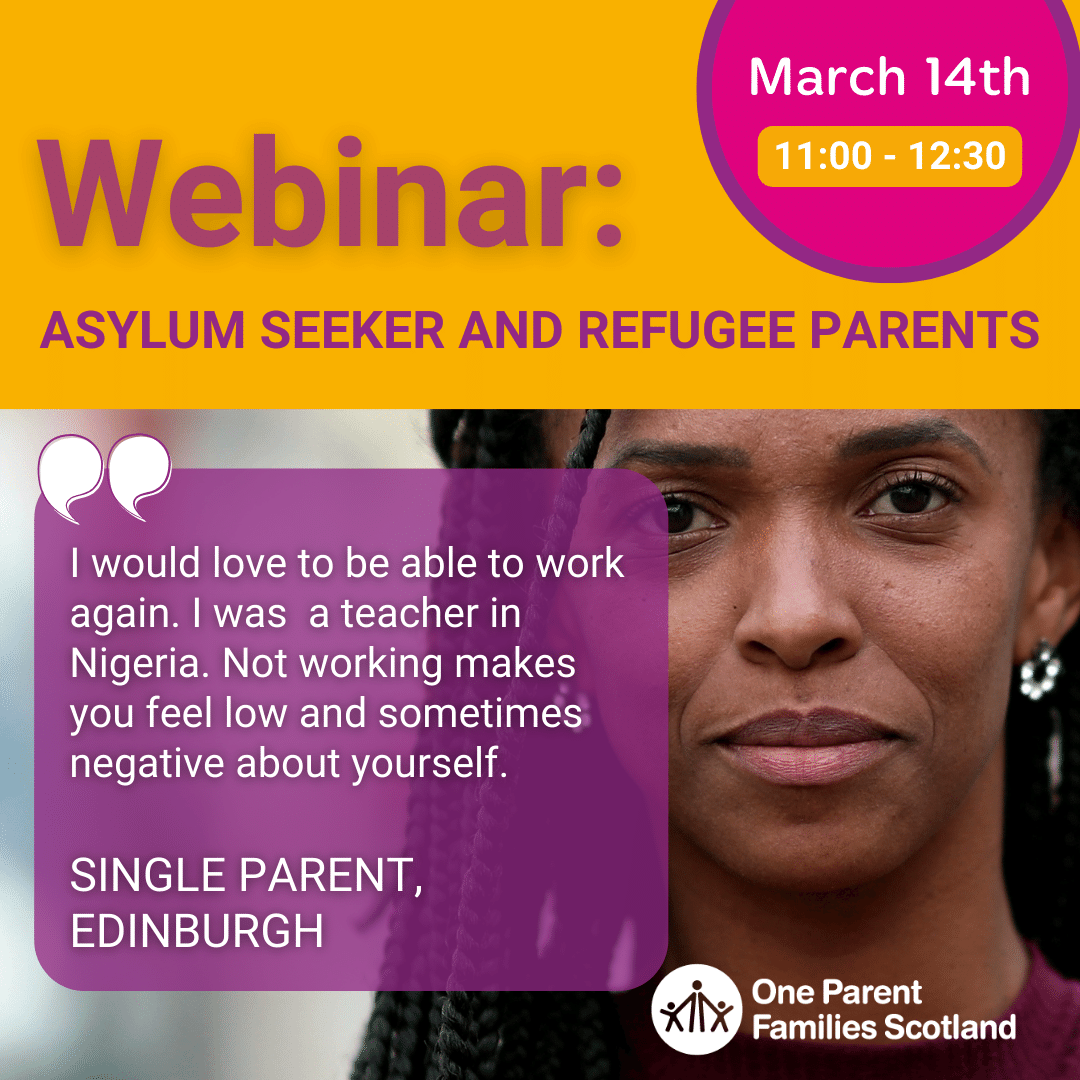Webinar Refugee and asylum seeker parents
OPFS will be hosting a free webinar on 14th March with guest parent speakers and speakers from Multi-Cultural Family Base
11/03/2024
News

Book here:
Key speakers
Chair: Marion Davis, Director of Policy, Communications and Strategy
Principal speaker – Toni Valbonesi, Policy & Research Officer.
Guest speaker: Jana Ridegova, Bright Choices Project Leader, Multi-Cultural Family Base.
Guest speaker: Ethelinda Lashley-Scott, Chief Executive Officer, Multi-Cultural Family Base.
Summary
The webinar will present the key findings from our October 23 Impact Report and will consider some of the day-to-day challenges that asylum seeker/refugee parents are facing in Scotland.
Asylum seeker/refugee parents face many types of inequality and often struggle to receive the right support, such as eligibility for public funds.
As well as looking at the report’s key findings, the webinar will involve guest speakers from Multi-Cultural Family Base.
The webinar will be live on the day but will be recorded and shared on this page afterwards.
The webinar be from 11-am to 12.30pm on Microsoft Teams.
Book your place now